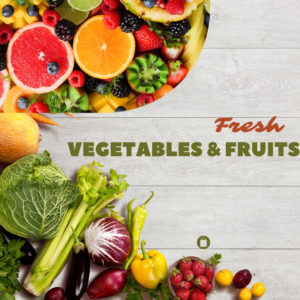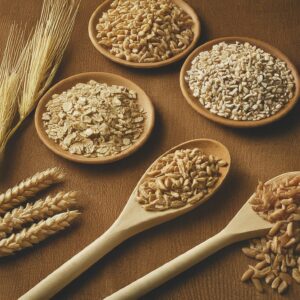Overview
The Mediterranean diet is more than simply a list of foods; it’s a guide to a happier, healthier way of life.
It originated from the dietary customs of the nations that surround the Mediterranean Sea.
This diet, which invites individuals to enjoy a range of meals rich in nutrients and flavors, has gained popularity worldwide and is well-known for its heart-healthy and longevity-promoting effects.
The Philosophy That Guides the Mediterranean Diet for Dieters
A lifestyle that places an emphasis on eating natural foods, sharing meals with family and friends, and maintaining an active lifestyle is at the heart of the Mediterranean diet.
This way of eating emphasizes the consumption of plant-based foods, lean proteins, and healthy fats, and it is supplemented by the use of wine in moderation.
Not only does food serve as a source of nourishment, but it also acts as a reason to get together and celebrate, which is a testament to the concept of eating for wellness.
Essential Elements of a Mediterranean Diet
In the regions around the Mediterranean Sea, the Mediterranean diet is not only a set of eating habits but a way of life that has been passed down through the generations. Its all-encompassing eating philosophy is praised globally for its abundant diversity and well-balanced diet, which not only enhance physical health but also encourage a happy and sustainable way of life. Let’s examine the essential elements that form the cornerstone of this renowned diet in more detail.
Vegetables and Fruits: A Rainbow of Health Benefits
Fruits and vegetables, which are high in vitamins, minerals, antioxidants, and fiber, form the foundation of the Mediterranean diet.

This diet promotes eating an abundance of vibrant food, so every meal is visually appealing in addition to being healthy for the body.
Fruits and vegetables form the foundation of every meal, from vitamin C and lycopene-rich tomatoes and bell peppers to iron- and vitamin-rich leafy greens like spinach and kale.
By offering vital nutrients and fibers that support digestive health and lower the risk of heart disease and some malignancies, they not only increase the nutritional density of the diet but also aid in the prevention of chronic diseases.
Whole Grains: The Superchargers of Energy
Another essential component of the Mediterranean diet are whole grains, which offer a consistent energy source and aid in preserving digestive health.
In this diet, staple foods like oats, barley, whole wheat, and farro are treasured for their nutritional value as well as their adaptability.

These grains are high in dietary fiber, which promotes healthy weight maintenance and aids in digestion, and B vitamins, which are essential for energy metabolism.
Including whole grains in bread, pasta, cereals, and side dishes enhances the Mediterranean diet’s flavor and texture, making it healthful and filling.
Nuts and Legumes: The Harmony of Protein and Fat
Nuts and legumes are prized for their high protein content and heart-healthy fats, which are vital for general well-being and heart health.

Almonds, walnuts, lentils, beans, and chickpeas are a few foods that fit in well with the Mediterranean diet. They are great as plant-based protein sources, which makes them ideal as snacks or essential ingredients in main meals.
Legumes, being high in fiber and antioxidants, aid in controlling blood sugar levels and enhancing feelings of fullness, whilst nuts, including beneficial monounsaturated and polyunsaturated fats, nourish the heart and brain.
These nutrient-dense foods, which offer a symphony of flavors and health benefits, are a testament to the diet’s emphasis on diversity and balance.
Fish and Lean Meats: The Proteins High in Omega-3
Seafood is especially important in the Mediterranean diet, especially fatty fish like sardines, salmon, and mackerel, which are excellent providers of omega-3 fatty acids.

Because of the anti-inflammatory qualities of these important fats and their significance in heart health, seafood is a better source of protein than red meats.
Moderate inclusion of lean meats, such poultry, is in line with the diet’s ideals of diversity and balance. This inclination emphasizes the Mediterranean diet’s emphasis on consuming foods that both nourish and shield the body from illness.
Olive Oil: The Ethereal Treasure
The main source of additional fat in the Mediterranean diet is olive oil, also known as “liquid gold,” which is prized for its heart-healthy monounsaturated fats.
Not only is it a culinary element, but it’s also a cultural mainstay that gives food depth and taste. Beyond just being delicious, olive oil is highly valued for its anti-inflammatory and antioxidant qualities, which support its many health advantages, such as reducing the risk of heart disease and stroke.
Due to its many culinary applications, such as sautéing vegetables and dressing salads, it is an essential component in Mediterranean cuisine.
Dairy: A Mild Intimation
In the Mediterranean diet, dairy products like cheese and yogurt are consumed in moderation.
While these foods are lower in calories than plant-based foods, they are still a good source of protein and calcium.
Fermented dairy products, such as feta cheese and Greek yogurt, are preferred because they provide gut-healthy bacteria.
The diet’s overall goal of balance is reflected in this moderation of consumption, which guarantees that dairy adds to the diet’s nutritious richness without overpowering the variety of plant-based meals.
Spices and Herbs: The Taste Enhancers
Last but not least, the Mediterranean diet stands out for using a lot of herbs and spices, which not only give food a flavor boost but also have several health advantages.
Spices like paprika and cumin are combined with herbs like oregano, rosemary, basil, and mint to season meals, which lessens the need for added salt and brings out the tastes of the ingredients naturally.
By utilizing the natural antioxidants and anti-inflammatory properties present in many herbs and spices, this method not only improves the culinary experience but also promotes health.
A Closer Look at the Health Advantages of a Mediterranean Diet
Adopting a Mediterranean diet has been the subject of in-depth research and has been connected to numerous health advantages, highlighting its significance in improving life quality as well as preventing disease.
This diet offers a comprehensive approach to health that goes beyond basic nutritional consumption. It is distinguished by its great array of foods that are high in nutrients and antioxidants.
All-Inclusive Cardiovascular Advantages
The beneficial effects of the Mediterranean diet on cardiovascular health are among its most notable benefits.
Following this diet lowers the risk of significant cardiovascular events, such as heart attacks, strokes, and heart disease-related death, as evidenced by numerous studies.
The diet’s focus on heart-healthy fats from nuts, fish, and olive oil is thought to have this protective impact since these fats lower blood pressure, improve cholesterol levels, and reduce inflammation throughout the body.
The abundance of antioxidants and polyphenols in the diet is also essential for preventing damage to the heart and blood vessels.
The Management of Weight and Metabolic Health
The Mediterranean diet has demonstrated impressive effectiveness in enhancing weight control and lowering the risk of type 2 diabetes when it comes to metabolic health.
Its emphasis on fruits, vegetables, whole grains, and legumes improves insulin sensitivity and helps control blood sugar, both of which are essential for preventing diabetes.
In addition, the plan encourages a balanced way of eating that helps maintain weight loss over time without requiring tight calorie tracking.
People who follow this diet typically feel fuller after eating, which lowers their overall calorie intake and promotes good weight management.
Effects of Neuroprotection on Mental Health
Numerous studies have demonstrated that a Mediterranean diet is beneficial for neuroprotection and may reduce the risk of neurodegenerative disorders including Parkinson’s and Alzheimer’s.
The high concentrations of anti-inflammatory and antioxidant-rich foods may help prevent cognitive loss by slowing down the aging process in the brain.
Furthermore, fish—a mainstay of the Mediterranean diet—contains omega-3 fatty acids, which are well-known for their benefits to mental health, mood enhancement, and a lower risk of anxiety and depression.
This diet helps to improve mental health and quality of life by supporting mental health in addition to physical health.
Increased Vitality and General Health
Followers of the Mediterranean diet often report feeling more energised and having a better overall sense of wellbeing. This is explained by the diet’s balanced macronutrient profile, which guarantees a constant flow of energy all day long.
The Mediterranean diet offers a steady and maintained energy source, making people feel more awake and energetic than diets heavy in processed foods and sugars that can cause energy spikes and crashes.
A more active and satisfying life can also be further contributed to by the diet’s emphasis on fresh, whole foods and the avoidance of processed and sugary meals, which can greatly improve mood and vitality.
A Way to Live a Longer, Healthier Life
The Mediterranean diet is a comprehensive lifestyle strategy that incorporates social contacts and physical activity, both of which are essential for leading a healthy, balanced life.
It is not only about food. People who follow the Mediterranean diet can get several health benefits, such as increased longevity and mental clarity, as well as better weight management and cardiovascular health.
It is evidence of the influence that food decisions have on not just our physical health but also our general sense of contentment and happiness in life.
How to Apply the Mediterranean Diet in Your Day-to-Day Activities
Embracing incremental, sustainable adjustments to your eating habits instead of demanding drastic ones is the path to a better lifestyle that comes with incorporating the Mediterranean diet into your everyday routine.
This all-encompassing method emphasizes savoring the joys of eating, connecting with others during meals, and enhancing your diet with a wide variety of nutrient-dense foods.
Here is a more detailed explanation on how to incorporate the ideas of the Mediterranean diet into your daily life:
Prepare the Pantry First: Establishing a Mediterranean Foundation
Keeping your pantry well-stocked is the first step in adopting a Mediterranean diet. Give entire grains—like brown rice, farro, bulgur, and whole wheat pasta—priority since they make excellent foundations for a wide range of recipes.
For cooking and dressings, olive oil’s heart-healthy monounsaturated fats should be used instead of butter and other saturated fats. To add depth and flavor to recipes, use canned or jarred tomatoes, which are packed with the antioxidant lycopene, along with a selection of olives and an assortment of raw nuts, such as pistachios, walnuts, and almonds.
Additionally, think about always having dried herbs and spices on hand. Herbs like oregano, basil, thyme, and rosemary can add flavor to basic recipes without adding too much salt.
Rethink Your Protein by Using a Variety of Sources
Reassessing your protein sources is a necessary part of adjusting to the Mediterranean diet. Although fish and poultry are the main sources of protein, it is best to limit your intake of red meat and think of it as a treat rather than a daily necessity.
Omega-3 fatty acids, which are abundant in fatty fish like sardines, mackerel, and salmon, support heart health by lowering inflammation.
Legumes, such as beans, lentils, and chickpeas, are very rich in important minerals and fiber, and they also pack a powerful protein punch.
Including these in your meals will help you eat a more fulfilling, full diet by adding variety. Other adaptable and nutritious plant-based protein choices are tofu and tempeh, which are derived from soybeans.
Savor Meals with Friends: Eating Is Social
The social component of eating is highly valued in the Mediterranean diet, which promotes mealtime gatherings with loved ones to improve bonds and general wellbeing.
This social eating style promotes relaxation, discussion, and the making of memories in addition to providing nourishment.
To promote awareness and connection with those around you, consider throwing frequent dinner parties that emphasize Mediterranean cuisine, asking visitors to bring a dish for a potluck-style gathering, or just declaring mealtime a device-free zone.
Great Recipes for a Mediterranean Diet to Get You Started
Starting a Mediterranean diet offers a wealth of health advantages as well as the chance to sample a diverse range of cuisines.
An expanded selection of easy yet delicious recipes that capture the essence of the Mediterranean diet may be found below.
The purpose of these dishes is to highlight the diet’s emphasis on whole, nutrient-dense foods, providing a well-rounded approach to each meal of the day.
Increased Selection for Breakfast
Toast with avocado and tomato on whole grain: A straightforward yet incredibly nourishing way to start the day. On toasty whole grain bread, mash a ripe avocado.
Then, add sliced tomatoes, sea salt, and extra virgin olive oil on top. Add a poached egg or a few slices of smoked salmon for an additional protein boost.
Mediterranean-Style Omelet: Beat eggs, feta cheese, sliced tomatoes, spinach, and olives together. Cook with a little olive oil in a skillet for a tasty, high-protein breakfast.
Various Lunch Options
Quinoa salad topped with olives, feta, tomatoes, and cucumbers: Add chopped cucumbers, cherry tomatoes, crumbled feta cheese, and Kalamata olives to the cooked quinoa.
Toss with olive oil, lemon juice, salt, and pepper for a light and satisfying meal.
Mediterranean Vegetable Wrap: Top a whole grain wrap with roasted red peppers, cucumbers, artichoke hearts, and arugula along with some hummus. A nutrient-dense, tasty, and convenient meal to eat on the go.
Improved Recipes for Dinner
Roasted Vegetables on the Side with Grilled Salmon: Garlic, dill, lemon juice, and olive oil are used to marinate salmon fillets.
Sear to perfection and serve with roasted bell peppers, eggplant, and zucchini mixed with olive oil and herbs on the side.
Chicken Tagine accompanied by Almonds and Apricots: Moroccan spice blend, apricots, almonds, onions, and slow-cooked chicken. For a true Mediterranean taste, serve this fragrant recipe over whole grain rice or couscous.
Improved Snack Concepts
Pairing Hummus with Cut Vegetables: To make your own hummus, blend together chickpeas, tahini, lemon juice, and garlic.
Present alongside a vibrant assortment of cut veggies, like cucumbers, bell peppers, and carrots.
Whole grain crackers paired with olive tapenade: In a food processor, pulse pitted Kalamata olives, capers, anchovies, garlic, and olive oil until coarsely chopped. Spread for a delicious snack on whole grain crackers.
Delicious Dessert Supplements
Greek yogurt paired with walnuts and honey: A simple yet fulfilling dessert is creamy Greek yogurt with a drizzle of honey and a handful of walnuts on top.
Orange, strawberry, and kiwi slices should be combined with a mint-citrus dressing for a fruit salad. For a cool finish to any meal, dress with a simple vinaigrette composed of lemon juice, olive oil, and fresh mint.
These Mediterranean recipes are not only delicious and diverse but also adhere to the principles of the diet, incorporating a variety of Mediterranean ingredients for a balanced, flavorful, and nutritious lifestyle. They are accessible, easy to prepare, and enjoyable to eat.
A Closer Look at the Mediterranean Diet’s Social Aspect
The Value of Sharing Meals
A unique and highly valued feature of the Mediterranean diet is its deep focus on the communal aspect of eating together.
This custom frames meals as essential times for bonding and companionship, going beyond the simple act of eating.
Mediterranean societies view meals as a daily ritual that brings families and friends together to fortify bonds and produce enduring memories in addition to nourishing their bodies.
Fueling the Body and the Soul
These social interactions take place against the backdrop of the Mediterranean diet, which is known for its wide range of flavors and emphasis on fresh, healthful products.
Sharing meals with others feeds the soul in addition to sating hunger. This social side of meals promotes introspective conversation, slower eating, and attentive food appreciation.
It is commonly recognized that engaging in these activities improves general wellbeing by lowering feelings of isolation and loneliness. Additionally, they enhance people’s emotional and psychological well-being by fostering a sense of contentment and belonging.
Increasing Community Cohesion
Within the framework of the Mediterranean diet, the custom of sharing meals transcends the family and is essential to communal development.
Food is the focal point of festivals, festivities, and even informal get-togethers, which helps everyone in the community feel united and like they belong.
This collective eating style emphasizes the benefits of the Mediterranean diet for social cohesion as well as physical well-being.
A Spark for Dialogue and Cross-Cultural Understanding
Mediterranean civilizations typically take their meals slowly. These are long-lasting conversations filled with humor, guidance, and story-telling.
In addition to strengthening bonds between people, this open dialogue provides a forum for cross-cultural dialogue and comprehension. People exchange recipes, cultural heritage, and customs through food sharing, which strengthens respect and admiration for one another.
Food’s Place in Traditions and Celebrations
Seasonal and locally obtained foods are emphasized in the Mediterranean diet and are integral to many local festivities and customs.
These food-focused gatherings play a crucial role in preserving cultural identity and legacy and transferring customs from one generation to the next.
During these occasions, the cooking and eating of certain foods strengthens bonds within the community and its collective memory.
Managing the Mediterranean Diet’s Issues and Considerations
Adopting a Flexible Approach to the Mediterranean Diet
The Mediterranean diet is praised as an incredibly flexible eating plan because of its wide range of health advantages and varied taste.
Even with its widespread popularity, people starting this nutritious path could run across a number of obstacles, including as finding certain components or getting used to the taste.
But the flexibility and principle-centered approach that characterize the Mediterranean lifestyle are what really make it what it is, rather than stringent dietary guidelines.
Overcoming Availability Issues with Ingredients
The availability of certain foods is one of the most frequent challenges encountered by followers of the Mediterranean diet, particularly by those who reside in areas where fresh seafood, olive oil, and a wide variety of fruits and vegetables are either expensive or difficult to obtain.
To ensure that the fundamental nutritional values of the diet are preserved, inventive substitutes can aid in overcoming these obstacles.
Canola oil, which is high in monounsaturated fats, can serve as a good substitute for olive oil, while fruits and vegetables that are unique to the Mediterranean region can be replaced with fresh or frozen produce that is accessible nearby.
These modifications, which emphasize the value of consuming a range of nutrients, enable the diet’s health advantages to be maintained even in situations when traditional foods are not readily available.
Getting Used to New Tastes and Cooking Techniques
Acclimating to the unique flavors and cooking techniques of the Mediterranean diet is another difficulty, especially for individuals who are used to diets heavy in processed foods or with diverse culinary traditions.
For those who may not be familiar, the Mediterranean diet advocates using herbs and spices to bring out the natural flavors of food.
People can begin by using familiar herbs and then progressively add more unusual spices to help smooth this adjustment. Learning new cooking methods can be made less intimidating and more pleasurable by using cooking classes, recipe books, and online tools.
Social and Cultural Aspects
Since the Mediterranean diet strongly emphasizes shared meals and the social component of eating, adopting the diet also requires cultural and social adaptations.
In countries where eating alone or in a hurry is common, this move to communal dining can be a big adjustment for people. The social side of the Mediterranean lifestyle can be fostered by creating a group of like-minded people or encouraging family members to have meals together.
This will improve the overall dining experience and reinforce the tenets of the diet.
Financial Aspects
Another factor to take into account is the seeming expense of sticking to a Mediterranean diet. Although certain diet staples, like fresh seafood and olive oil, can be pricey, the diet primarily consists of plant-based foods, which are typically less expensive.
Many people find that the Mediterranean diet is an affordable alternative because it may be reduced in expenses by meal planning, buying in bulk, and selecting locally grown and seasonal fruit.
CONCLUSION
The Mediterranean diet is a sustainable lifestyle that promotes pleasure, connection, and sustainability.
It transcends conventional eating methods and offers a way to nourish the body and foster a profound connection with others. The diet emphasizes the joy of simple, whole foods and the richness of communal dining.
It encourages slow savoring of each bite, recognizing food as a source of joy and satisfaction. Sharing meals is a key aspect of the Mediterranean diet, fostering social bonds and enhancing emotional well-being.
The diet also promotes the consumption of locally sourced and seasonal produce, promoting a deeper connection to the earth and natural cycles. By adopting the Mediterranean diet, individuals deepen their commitment to a healthy, joyful, and enriching lifestyle.